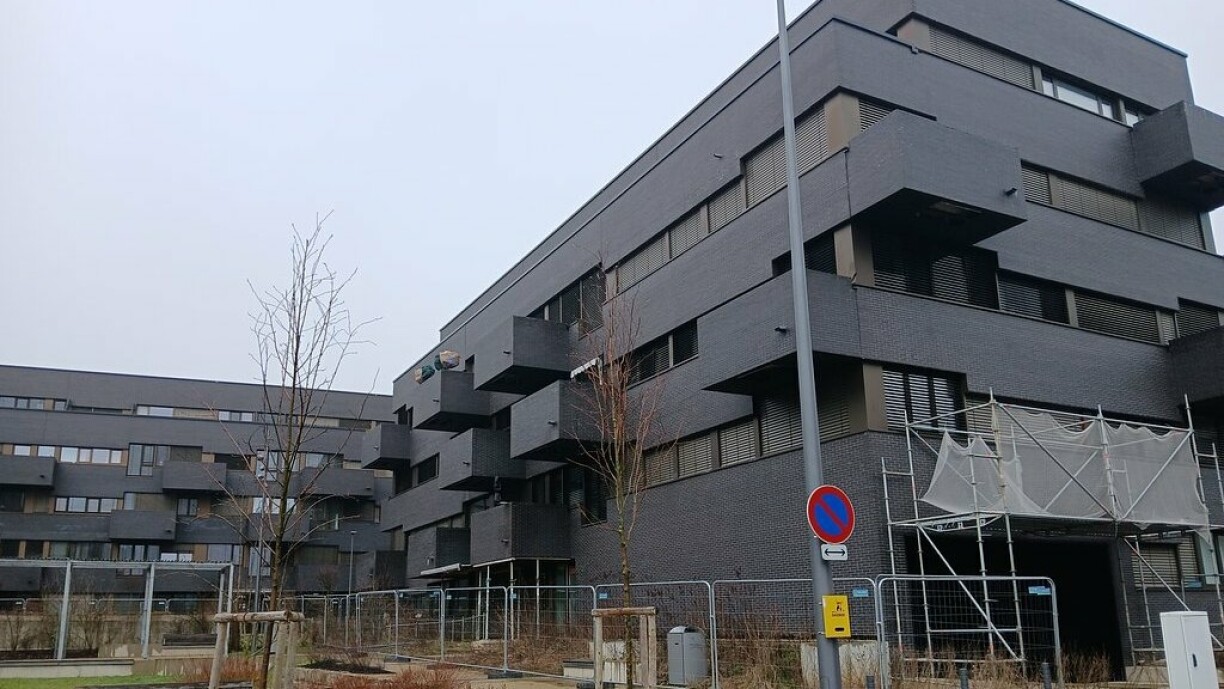
Since the first residents moved into three residences developed by the National Society for Affordable Housing (SNHBM) on Rue Václav Havel in Kirchberg at the end of 2021, they have faced a series of persistent problems, ranging from structural defects to health concerns.
In August 2022, our colleagues from RTL Infos reported on the issues plaguing the new homes, including damp cellars and leaking windows. The situation escalated in September 2023 when a section of balcony edging collapsed into a garden. Since the incident, fences have been erected around the buildings, and residents have been advised to avoid using their balconies or terraces. The developer, SNHBM, and the construction company, CLE, are currently disputing responsibility for the defects, leaving residents frustrated and caught in the middle.
Residents report that problems were evident from the moment they received their keys, with issues such as scratched windows and damp cellars. Many felt pressured to sign for their flats despite these defects.
Cindy, president of the ownership committee, recounted being told that dampness in the cellar was “normal”, only to discover mould and fungus damaging her belongings months later.
While SNHBM has taken steps to address some of the issues, residents continue to report leaky windows and malfunctioning ventilation systems even though ventilation filters are being changed four times a year instead of the recommended twice. Recent tests have also revealed excessively high concentrations of bacteria in at least one flat.
The most pressing issue, however, remains the risk of parts falling from the balconies. Approximately two-thirds of the development’s 100 balconies are affected. Residents are directing their frustration toward SNHBM, questioning the oversight during construction. Roberto, a member of the ownership committee, expressed his concerns:
“We’re wondering how it’s possible that SNHBM, as the developer, didn’t conduct proper checks during construction. Why weren’t there more inspections? We understand they’re obliged to work with the cheapest company due to the system, but if that’s the case, why weren’t there stricter controls?”
SNHBM emphasised that the construction work was carried out by private companies, not its own employees. With a thousand sites across the country, the organisation stated it cannot oversee every detail. However, residents question why the issues were not identified during post-construction inspections.
SNHBM Director Guy Entringer defended the organisation’s position, stating that the balcony defects were not visible from the outside. “Everything appeared as it should. The façade wasn’t fully finished, but the incident couldn’t have been foreseen. Of course, if we had known about the risk, we certainly wouldn’t have handed over the keys. But it’s simply impossible to monitor every aspect of construction”, he explained.
Entringer also highlighted broader challenges in the construction industry, including a shortage of skilled craftspeople and the increasing reliance on subcontractors, which he said reduces transparency. A legal assessment is currently underway to determine responsibility. If no agreement is reached, the case could end up in court, potentially prolonging the resolution process.
SNHBM is not only the developer of the project but also the owner of one of the three residences, representing 40% of the co-ownership syndicate. Despite this dual role, Entringer insisted that SNHBM has never influenced decisions in its favour.
The organisation also stressed that the current situation is clearly not in its interest. Meanwhile, CLE, the construction company responsible for the shell and facade of the buildings, did not respond to RTL’s request for comment.